Introduction
A healthy diet is the cornerstone of a vibrant and energetic life. It’s the fuel that powers all our bodily functions and the foundation of our well-being. The importance of a healthy diet cannot be overstated; it is crucial for maintaining good health, preventing chronic diseases, and ensuring that our body operates at its peak. A balanced diet rich in essential nutrients supports the immune system, maintains healthy weight management, and promotes longevity.
Importance of a Healthy Diet for Overall Well-being
A nutritious diet is vital for more than just weight management; it’s essential for the overall functioning of our body. The World Health Organization (WHO) stresses that consuming a nutritious diet safeguards against malnutrition in its various manifestations, as well as non-communicable diseases (NCDs) such as diabetes, cardiovascular ailments, stroke, and cancer. Unhealthy diets and lack of physical activity are leading global risks to health. By choosing a diet rich in fruits, vegetables, lean proteins, and whole grains, we can improve our health and reduce the risk of various diseases. Healthy Diet
Overview of the 10 Essential Foods for a Healthy Diet
When it comes to essential foods for a healthy diet, diversity is key. The Harvard Health Blog outlines superfoods that can enhance a healthy eating pattern, including berries, fish, leafy greens, nuts, and olive oil. These foods provide a plethora of nutrients that are beneficial for heart health, weight management, and the prevention of chronic diseases. Incorporating a variety of these foods into your diet can help ensure you’re getting the necessary nutrients for optimal health.
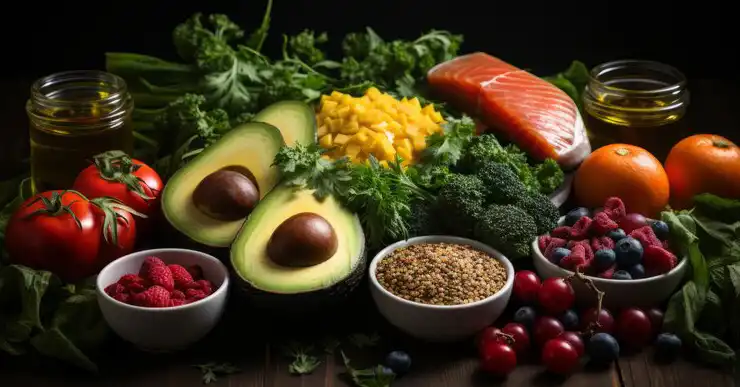
Whole Grains
Benefits of Whole Grains
Whole grains are a powerhouse of nutrition. They are high in fiber, vitamins, minerals, and antioxidants, which collectively contribute to a myriad of health benefits. Consuming whole grains can lower the risk of heart disease, stroke, obesity, and type 2 diabetes. They also play a crucial role in maintaining digestive health and promoting a feeling of fullness, which can aid in weight management. Healthy Diet
Examples of Whole Grain Foods
There are many delicious and nutritious whole-grain foods to choose from. Some common examples include brown rice, oatmeal, barley, quinoa, farro, popcorn, and whole-wheat pasta. These foods are not only rich in nutrients but also versatile and can be incorporated into various meals throughout the day. Healthy Diet
Tips for Incorporating Whole Grains into Your Diet
Incorporating whole grains into your diet can be simple and enjoyable. Start by substituting white bread with whole grain bread, and white rice with brown rice or quinoa. You can also try whole grain pasta instead of regular pasta and choose whole grain cereals for breakfast. Experimenting with different whole grains can add variety to your meals and help you discover new favorites. Healthy Diet
Lean Proteins
Lean proteins are essential for maintaining and repairing tissues, supporting immune function, and serving as a source of energy. They are particularly important for muscle building and weight management, as they help to increase satiety and reduce overall calorie intake. Lean proteins include poultry, fish, beans, and legumes, which provide the body with the necessary amino acids without the added saturated fats found in higher-fat meats. Healthy Diet
Incorporating lean proteins into your diet can be simple and delicious. For example, a quinoa salad with grilled chicken and colorful vegetables or a salmon stir-fry with broccoli and brown rice are both nutritious and satisfying meals that feature lean proteins.
Fruits and Vegetables
Fruits and vegetables are powerhouses of nutrition, packed with vitamins, minerals, fiber, and antioxidants. They play a crucial role in preventing chronic diseases, maintaining healthy digestion, and supporting overall health. To increase your intake, consider adding fruit to your breakfast cereal or yogurt, snacking on raw veggies, or incorporating a variety of colorful produce into every meal. Healthy Diet
A seasonal produce guide can help you select the freshest fruits and vegetables available, ensuring you get the best flavor and nutritional value. Eating seasonally also supports local farmers and can be more cost-effective.
Healthy Fats
Healthy fats are crucial for a balanced diet, providing energy, supporting cell growth, protecting organs, and aiding in nutrient absorption. Sources of healthy fats include avocados, nuts, seeds, and certain oils like olive and canola.
When cooking, it’s important to choose oils with high smoke points and stability. Olive oil, for example, is great for sautéing vegetables or proteins, while avocado and canola oils are suitable for high-heat cooking. Incorporating these healthy fats into your meals not only adds flavor but also contributes to a heart-healthy diet. Healthy Diet

Dairy or Dairy Alternatives
Calcium is essential for preserving skeletal strength. It’s a vital mineral that helps form and maintain strong bones and teeth, and it’s also necessary for other bodily functions, including muscle movement and nerve signaling. While dairy products like milk, cheese, and yogurt are traditional sources of calcium, there are many reasons why individuals may seek dairy alternatives, such as lactose intolerance, dietary preferences, or ethical concerns. Fortunately, there are numerous options available, including almond milk, soy milk, coconut milk, and rice milk, which can be fortified with calcium and other essential nutrients to ensure adequate intake. For those looking to incorporate dairy-free options into their diet, there’s a plethora of recipes ranging from pancakes and pies to curries and casseroles, all made without dairy ingredients.
Nuts and Seeds
Nuts and seeds are nutritional powerhouses, offering a wealth of health benefits. They are rich in essential nutrients such as protein, healthy fats, vitamins, and minerals, and they’re known for their antioxidant properties. Incorporating nuts and seeds into your diet can be as simple as snacking on mixed nuts, adding them to salads, blending them into smoothies, or using nut butter as spreads. There are also many recipes for making your own nut butter at home, providing a healthier and customizable alternative to store-bought versions. Healthy Diet
Legumes
Legumes are a diverse group of plant-based foods that offer significant health benefits. They are an excellent source of plant-based protein and are rich in fiber, vitamins, and minerals. Regular consumption of legumes can help protect against chronic diseases such as type 2 diabetes and heart disease, and they play a role in weight management and digestive health. There are many different types of legumes to choose from, including lentils, chickpeas, various beans, and peas, each offering unique nutritional benefits. For vegetarians or those looking to add more plant-based meals to their diet, legumes can be the star ingredient in a variety of dishes, from hearty stews and curries to salads and soups. Healthy Diet
Herbs and Spices
Herbs and spices have been celebrated for centuries, not only for their flavors but also for their medicinal properties. Modern research supports their health benefits, revealing that they are rich in antioxidants, anti-inflammatory agents, and other bioactive compounds that can help prevent chronic diseases and promote overall health. Common herbs and spices like cinnamon, sage, and turmeric can be easily incorporated into daily cooking to enhance flavor and boost nutrition. For those looking to create their own kitchen masterpieces, homemade spice blend recipes offer a personalized touch to any dish, allowing for a fusion of flavors tailored to individual tastes. Healthy Diet
Water
The importance of staying hydrated cannot be overstated. Water is crucial for maintaining bodily functions, including temperature regulation, nutrient transport, and waste elimination. To increase water intake, one can carry a water bottle, flavor water with fruits, or eat water-rich foods. Infused water provides a delightful alternative to plain water, combining hydration with the subtle flavors of fruits, herbs, and spices. Healthy Diet
Superfoods
Superfoods are foods that offer maximum nutritional benefits for minimal calories packed with essential nutrients like vitamins, minerals, and antioxidants. Examples of superfoods include dark leafy greens, berries, green tea, and nuts, all known for their health-promoting properties. Incorporating superfoods into meals is made easy with recipes that feature these nutrient-dense ingredients, offering delicious ways to enjoy a healthy diet.
Conclusion
In summary, a healthy diet is built on a foundation of nutrient-rich foods. Herbs and spices, water, and superfoods are just a few categories that can significantly contribute to one’s well-being. By making small, sustainable changes to include these essential foods, individuals can take meaningful steps towards a healthier lifestyle, reaping the benefits of nature’s bounty for both body and mind. Embrace the journey towards health, one flavorful, hydrating, and nutrient-packed step at a time.
Frequently Asked Questions
01. What are the 10 most healthy foods to eat?
- Nuts
- Lentils
- Apples
- Broccoli
- Oatmeal
- Eggs
02. What 10 foods should you eat everyday?
- Berries
- Eggs
- Sweet Potatoes
- Broccoli
- Oats
- Spinach
- Tea
- Nuts.
03. What are the essential foods for daily diet?
- Lean protein
- Cruciferous vegetables
- Different colored vegetables
- Berries
- Nuts
- Olive oil
04. What are the top 20 healthy foods?
- Eggs
- Walnuts
- Bell peppers
- Berries
- Broccoli
- Leafy greens
05. What are 25 healthy foods?
- Poultry
- Fruit
- Grains
- Vegetables
- Legumes.
06. What are 25 super foods?
- Berries
- Beans
- Cruciferous veggies
- Citrus fruits
- Algae
07. What are the 20 power foods?
- Beets
- Basil
- Cauliflower
- Turmeric
- Miso
- Butternut Squash
- Walnuts
- Maca
08. What is the 50 25 25 diet?
This refers to a diet where 50% of your plate is veggies or salad, 25% lean protein, and 25% starchy vegetables or carbs, which can aid in weight management.
09. What are the top 20 power foods?
- High-fiber foods like pears and beans
- Antioxidant-rich foods like tomatoes and peanuts
- Healthy proteins from plant sources like lentils and almonds.
*Image credits- freepik*
Important Notice:
The information provided on “health life ai” is intended for informational purposes only. While we have made efforts to ensure the accuracy and authenticity of the information presented, we cannot guarantee its absolute correctness or completeness. Before applying any of the strategies or tips, please consult a professional medical adviser.
**Good Health & Batter Life**











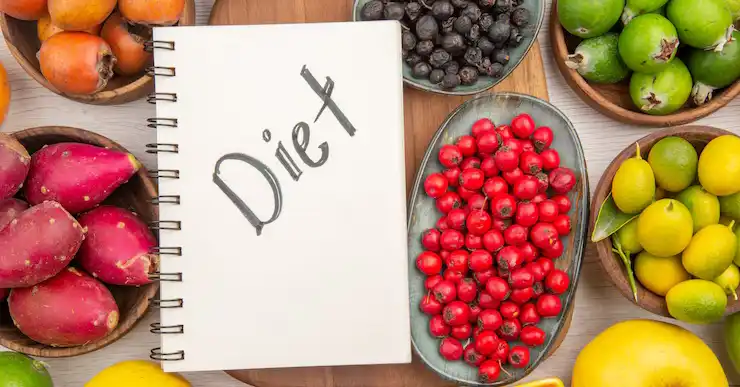

1 comment
Stumbling upon this website was such a delightful find. The layout is clean and inviting, making it a pleasure to explore the terrific content. I’m incredibly impressed by the level of effort and passion that clearly goes into maintaining such a valuable online space.